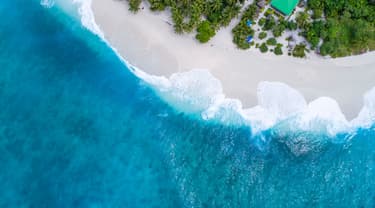- Blog
- Travel Advice
- 10 Things To Do Before Booking A Holiday In 2020
10 things to do before booking a holiday this year
Updated June 25, 2021
(Published September 11, 2020)
By Emma Coulthurst
The pandemic has changed the way we plan and book holidays. Whether you’re looking to rebook a cancelled trip or are hoping for the green list to further expand in time for a summer break, remember to do these ten things first.
Please note: This article is correct at the time of publication, but this is a fast-moving situation and things can change quickly. If you have any questions, please get in touch with us on Twitter or Facebook.
1. Understand FCDO advice

The Foreign, Commonwealth & Development Office (FCDO) advises travellers on where they can and cannot travel. You should check the advice for your destination – and check it often – when booking a holiday, as well as in the lead up to your trip.
Travel is allowed to countries and territories on green list (more on this below). However, there a few amber list countries and territories where travel is technically allowed (ie where the FCDO does not advise “against but essential travel”). Currently, some Greek islands, including Crete, Corfu and Rhodes, as well as the Canary Islands and Portugal have the FCDO all-clear to travel to for holidays. Remember, the Department for Transport’s official stance is you should not travel to amber list countries and territories.
If you have booked a package holiday and the FCDO changes its advice to ban “all but essential travel”, your holiday should be cancelled and you should be given the option of a full refund within 14 days. You may have the option to rebook your trip to different destination where holidays are still allowed or to take a Refund Credit Note. These can be used to rebook or cash in for a refund at any point, and are ATOL-protected until the end of September.
If you have a holiday to an amber country or island where travelled is allowed, but you do not want to self-isolate on your return to the UK, talk to your holiday operator – it’s likely that you can amend your booking.
2. Check the traffic light list

The DfT determines the requirements for returning to the UK via its traffic light system. Countries are categorised as either green, amber or red, depending on the Covid-19 risk of travelling there.
To return from a green list country, you will need to provide a negative Covid-19 result from a test taken within 72 hours of your arrival home. This can be a lateral flow or PCR test, and you must provide this as a printed document, an email or text message. You will also need to take a PCR test on or before day two of your arrival in the UK. You do not need to self-isolate.
Return rules for amber list countries are as above, plus ten days of self-isolation at home and a PCR test on day eight. Under the ‘Test to Release’ scheme, you can choose to pay for another PCR test on day five. If this is negative, you are allowed to stop self-isolating but you still need to pay for and take the PCR test on day eight.
Keep in mind that NHS tests cannot be used for travel – you must use the government-approved private test providers, or organise a testing package through your holiday operator. TUI’s testing packages, for example, start at £20.
3. Read up on your destination's entry requirements

The traffic light system is not reciprocal and has no bearing on whether a country will let you in. Many countries on the DfT’s green list are still closed to non-residents or require travellers to self-isolate on arrival.
So, it’s very important to check if a country is allowing holidaymakers and if you will be subject to any entry requirements. Nearly all countries require you to fill out a health declaration form before you travel, and many will require proof of a recent negative Covid-19 test. Check the FCDO advice and the government website for your country to be certain of the entry requirements.
4. Know the social distancing measures for your destination

As a minimum, it is likely you will need to wear a mask on your flight, at the airport and on all public transport, as well as maintain at least a 1m physical distance while out and about.
For example, in Malta, you must wear a mask in all indoor and outdoor public spaces, and masks are recommended on beaches (but are not mandatory). In Iceland, a 1m physical distance rule is in force, and it is not mandatory to wear masks in shops. To familiarise yourself with the rules, check the tourism site for that country.
Also, be aware that some attractions may be closed. For those attractions which are open, just like in the UK, may are operating at a reduced capacity to comply with social distancing measures. If you have your heart set on seeing a sight, check if it is open and make sure you book in advance.
5. Consider a package holiday for better consumer protection

The benefits of booking a package holiday have really come to the fore during the pandemic. With a package holiday, your holiday should be cancelled if the FCDO advice changes and you should be entitled to your money back.
A package holiday also has ATOL protection; if anything was to happen to the tour operator, you will get your money back via ATOL. A flight on its own is not ATOL protected.
6. Read the T&Cs carefully

Make sure you’re comfortable with the terms and conditions of your booking before parting with your money. With package holidays, providers are offering very flexible booking terms but there are some scenarios that are important to consider. For example, if you book a holiday to a green list destination that is later moved to the amber list and you don’t want to or can’t self-isolate, will the holiday company allow you amend your booking? Many companies will but it still pays to find out.
When it comes to booking your flights and accommodation separately, remember that your flight may go ahead despite changes government advice. An airline might, for example, argue that it still needs to take people to a destination for essential reasons. If the flight is still running despite FCDO advice changes, you will not get your money back.
Some airlines will allow vouchers (although be aware that it isn’t ATOL protected). Some airlines will only allow changes without fees within a certain period and you need to pay any fare difference. With your accommodation, look for free cancellation options.
7. Speak to your employer

8. Book on a credit card

Section 75 of the Consumer Credit Act protects credit card purchases over £100. It protects your money should your travel company go into administration.
If all else fails, it is also a route to getting your money back on a cancelled flight or holiday. As always, make sure you pay off your credit card balance in full at the end of the month so that you don’t incur any charges.
No credit card? You can always try the chargeback scheme for debit purchases.
9. Check your travel insurance

Look for travel insurance policies with enhanced Covid-19 cover – this generally includes cancellation cover if you were to contract Covid-19 within 14 days of your holiday and cannot travel. Many policies will also cover you for medical if you were to contract Covid-19 while abroad.
Remember if, after purchasing your policy, you realise it’s not quite for you, you are entitled to cancel your cover within 14 days under ‘cooling off’ rules.
And, as always, it’s important to buy your travel insurance as soon as you book your trip, so you can be covered for any serious life events that prevent you taking the holiday.
10. Make sure your EHIC is up to date - or get a GHIC

Check your EHIC (free via the NHS website) is in date; you can use it until it expires. Once it has expired, apply for the new free GHIC.
Both cards entitle you to reciprocal medical treatment in 29 European countries so it’s important to bring it with you if you visit. It is not valid in EEA countries or Switzerland.
Have a comment or question about this article? You can contact us on Twitter or Facebook.

